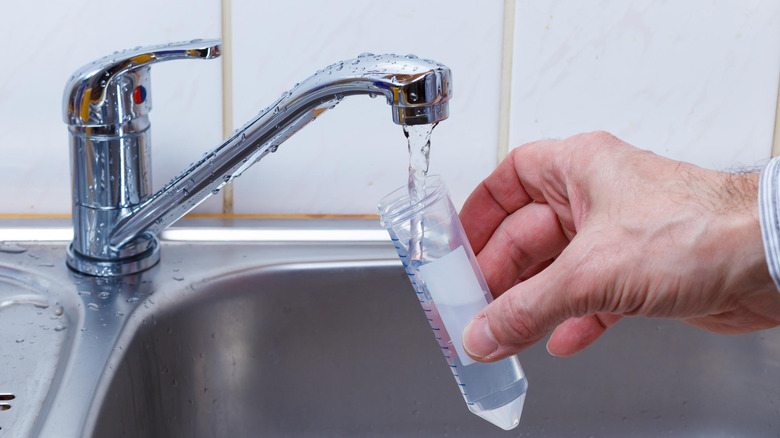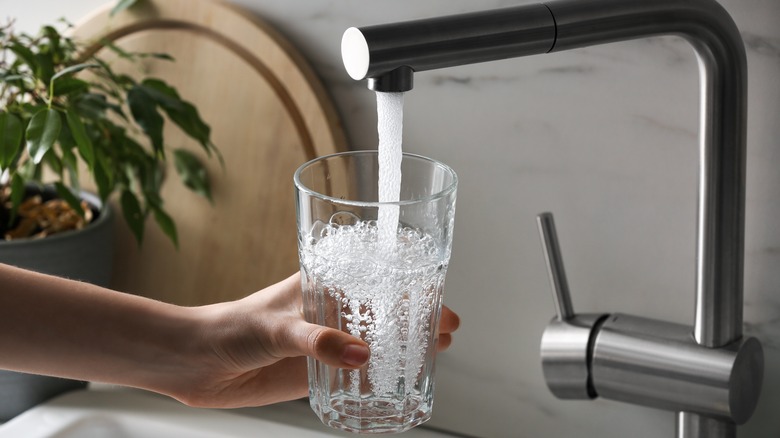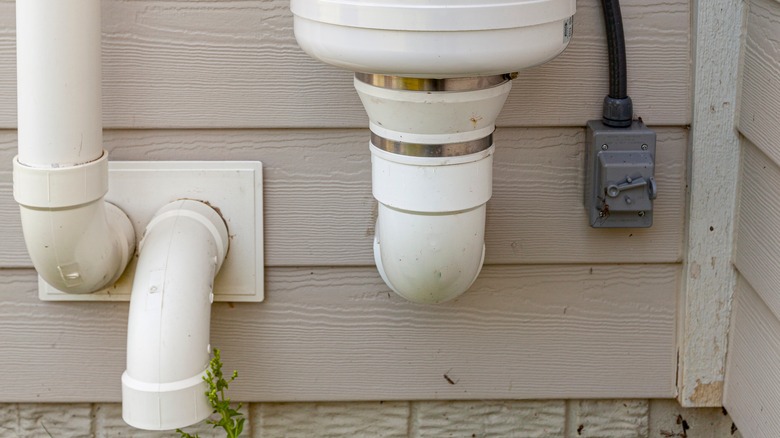The Alarming Reason You'll Want To Test Your Water If It Comes From A Well
Your well should be a source of clean, healthy water; but that's not always the case. If you haven't done so yet, now may be the time to have a radon test completed to make sure there's no risk to your family. Radon is an element that doesn't have an odor, taste, or any coloring to it; but it is radioactive and dangerous to your health. This naturally occurring gas is hard to detect unless you are looking for it in order to ensure your home is protected.
You may know that radon can occur in the air within a home, especially if the home doesn't have good ventilation overall. The ground can produce radon, though; and, when that happens, this element can build up in water sources, including the water in your home's well. You won't know it's there since it has no detectable presence to the human senses, but it could be putting your family at risk for years without any indication of its toxic levels.
The Environmental Protection Agency (EPA) recommends using a radon test kit to determine if there's radon present in your home's air first; and then, if there is, proceed with a test of your well water as well. You can purchase a kit or have a specialized provider, such as a licensed plumber, perform the test. If your home's radon level is 4 pCi/L (picocuries per liter) or higher, you are facing a high level of exposure and should take steps to reduce it.
Radon from soil is a big risk factor for wells
Any radon found in a water source is a problem, and that's particularly true when there's radon in your home's well. Not only does the radon get into your system when drinking that water, but it's also getting into the air. For example, if you only use well water to wash with and use bottled water for drinking, you're still facing radon exposure every time you turn on a faucet. The element is released into the air by the flowing water, and that creates a health risk for you.
Radon is a problem you shouldn't ignore. The Oregon Health Authority shares that more than 13% of lung cancer deaths are thought to be caused by radon exposure. With every breath, you breathe in the small radon particles that become trapped in the lung tissues and, over time, can lead to the growth of cancerous cells. That's due to the radioactive properties of radon, which creates small radiation-related bursts of energy in your lungs, forming particles. Those particles get stuck and remain in your lungs long term, creating a high risk for lung cancer.
Radionuclides, which are small particles of elements that create radiation, are often found in the soil and rocks in particular geographic areas. Wells in these areas can be particularly at risk for containing radon, according to the North Carolina Department of Health and Human Services. Since well water doesn't go to a treatment plant before coming into your home, it's safe to say this is a big risk of exposure.
What to do when you have radon present
Even if you've used the same well for years with no concerns, it's worth getting it tested. Private wells that have a concentration above 10,000 pCi/L need mitigation strategies to improve the water quality and keep you safe, according to the Maine Radiation Control Program. If your well has a level of between 4,000 and 10,000 pCi/L, treatment is considered optional but still beneficial. The good news is that you can fix a radon problem.
High radon levels lead to the need for radon reduction systems, which can drop the amount of radon present in a home by as much as 99%, according to the EPA. In wells, an aeration system can be used to reduce the amount of radon present at about the same rate. This system will aerate the water or mix the water with air from within a tank. This allows the radon to vent outdoors, away from your home's indoor air.
A secondary option is to use a granular activated carbon system. This type of charcoal filtration system will remove radon from your water source as it flows into your home, allowing for it to be removed long before it lands in your glass or the air.
It's best to work with a water treatment contractor or a specialized plumber who can help you invest in the appropriate system for your home. You don't want radon to be one of the hidden dangers in your home.


